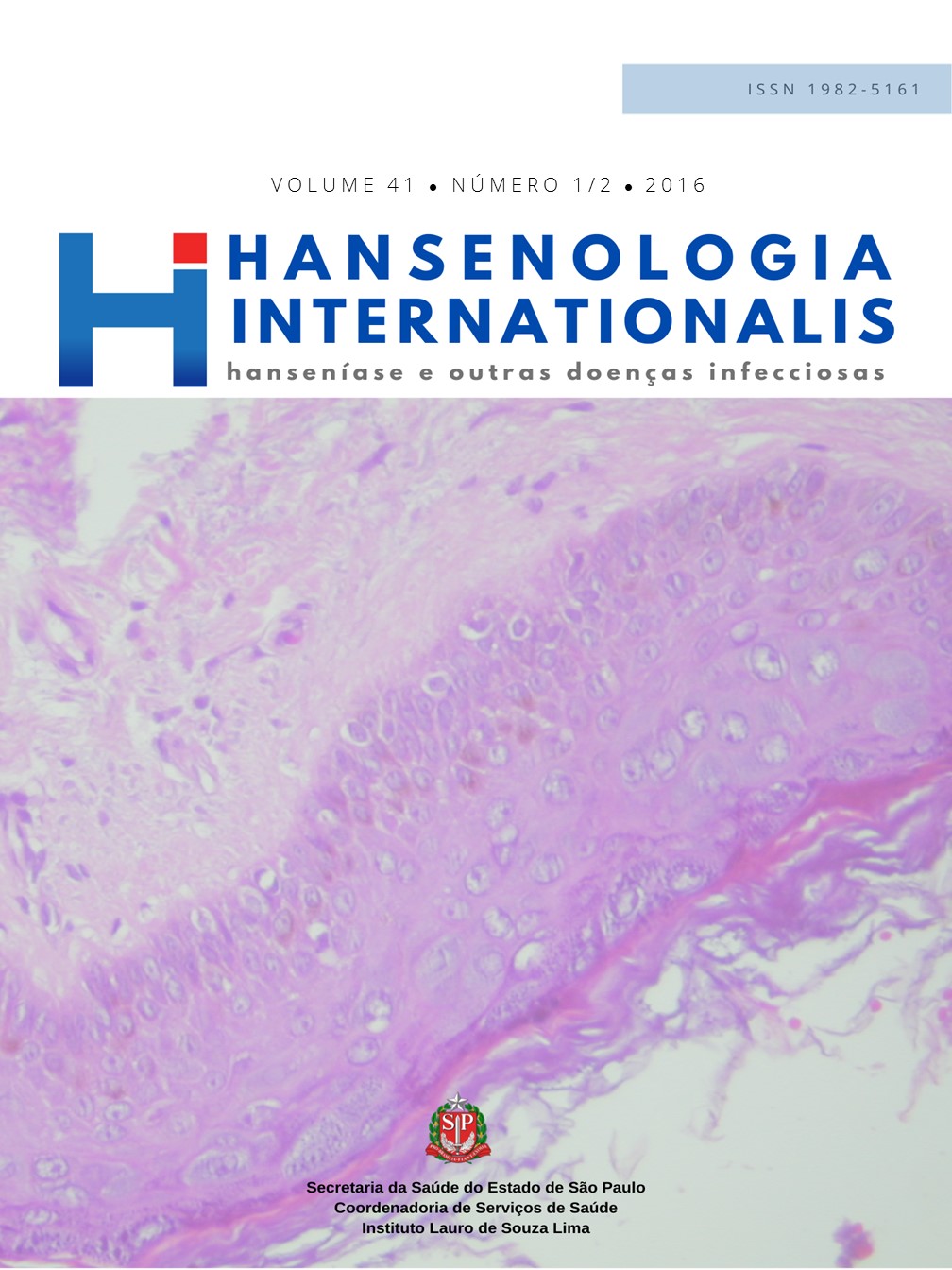Abstract
People living with leprosy have their self-image blemished due to injuries caused by the disease, leprosy reactions and discrimination. Despite being an old problem and the existence of educational campaigns to combat it, the stigma is present in the daily lives of these people and is a challenge for professionals who lack knowledge regarding the management of the disease in society and in their professional work. This article aims to reflect on the stigma and nursing care from Martin Heidegger’s ontological phenomenology. Humanistic care from the perspective of being-with-others, of recognizingcare as ontological and denying that it is rooted and dehumanizing is an alternative to face and overcome this condition. For the nursing staff, this brings the other as a partner in the construction of care, as a human being who lives that moment of meeting the professional in a being-in-the-world full of meaning and possibilities.
References
2. Feres MVC, Cuco PHO, Silva LA. Cooperação internacional e organizações não governamentais: releitura do papel institucional no combate às doenças negligenciadas. Sci Iuris. 2015;19(2):181-98. doi: 10.5433/2178-8189.2015v19n2p181
3. Brakel WHV, Sihombing B, Djarir H, Beise K, Kusumawardhani, L, Yulihane R, et al. Disability in people affected by leprosy: the role of impairment, activity, social participation, stigma and discrimination. Glob Health Action. 2012;5(1):18394. doi: 10.3402/gha.v5i0.18394
4. Mendonça RF. Hanseníase e mundo da vida: as diferentes facetas de um estigma milenar. Eco--Pós. 2007;10(1):120-47. doi: 10.29146/eco-pos.v10i1.1045
5. Goffman, E. Estigma.4a ed. Rio de Janeiro: LTC; 1988.
6. Vinicius de Moraes [Internet]. Rio de Janeiro: VM Cultural; [date unkown]. [cited 2016 Jun 09]. Poesias: Poética, Rio de Janeiro, 1954 [about 1 screen]. Available from:http://www.viniciusdemoraes.com.br/pt-br/poesia/poesias-avulsas/poetica
7. Dalgalarrondo P. Psicopatologia e semiologia dos transtornos mentais. 2a ed. Porto Alegre: Artmed; 2008.
8. Rego S, Palácios M, Batista RS. Bioética para profissionais de saúde. Rio de Janeiro: Editora Fiocruz; 2009.
9. Passos SSS, Silva JO, Santana VS, Santos VMN, Pereira A, Santos LM . O acolhimento no cuidado à família numa unidade de terapia intensiva. Rev enferm UERJ. 2015;23(3):368-74. doi: 10.12957/reuerj.2015.6259
10. Josbrilberg RS. A Fenomenologia como novo paradigma de uma ciência do existir. In: Pokladek, DD, organizador. A fenomenologia do cuidar: prática dos horizontes vividos nas áreas da saúde, educacional e organizacional. São Paulo, SP:
Vetor; 2004.
11. Fernandes ES, Almeida IS, Costa CCP, Ribeiro IB. A vivência do ser-adolescente com HIV/AIDS: um estudo fenomenológico para a enfermagem. Rev Enfermagem Profissional. 2014;1:447-61.
12. Gilbert P, Oliveira IV. A difícil tarefa de Nietzsche e Heidegger. Sapere Aude [Internet]. 2010 [cited2016 Jun 09];1(1):77-83. Available from: http://periodicos.pucminas.br/index.php/SapereAude/article/view/1162/1198
13. Heidegger M. Já só um deus nos pode salvar [Internet]. Covilhã: LusoSofia Press; 2009. [cited 2016 Jun 09]. Available from: http://www.lusosofia.net/textos/heideggger_ja_so_um_deus_nos_pode_ainda_salvar_der_spiegel.pdf
14. Dubois C. Heidegger: introdução a uma leitura. Rio de janeiro: Jorge Zahar editor; 2004.
15. Sebold LF, Carraro TE. Modos de ser enfermeiro-professor-no-ensino-do-cuidado-de-enfermagem: um olhar heideggeriano. Rev Bras Enferm. 2013;66(4):550-6. doi: 10.1590/S0034-71672013000400013.
16. Bauman Z. Amor líquido: sobre as fragilidades dos laços humanos. Rio de Janeiro: Jorge Zahar editora; 2004.
17. Heidegger M. Todos nós... ninguém: um enfoque fenomenológico do social. São Paulo: Moraes; 1981.
18. Boff L. Saber cuidar: ética do humano-compaixão pela terra. Petrópolis, RJ: Vozes; 1999.
19. Heidegger M. Ser e Tempo II. Petrópolis: Vozes; 2000.
20. Silveira LC, Vieira AN, Monteiro ARM, Miranda KCL, Silva LF. Clinical care in nursing: development of a concept in the perspective of professional practice reconstruction. Esc. Anna Nery. 2013 Aug;17(3):548-54. doi: 10.1590/S1414-81452013000300020.
This journal is licensed under a Creative Commons Attribution 4.0 International License.
